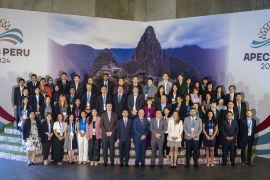"Antibiotic resistance is characterized by germs that are resistant to drugs. As a result, antibiotic drugs have stopped having an effect on people," Deputy Chairperson for Agro-industrial Technology and Biotechnology of the Assessment and Application of Technology (BPPT), Eniya Listiani Dewi, said here on Tuesday.
The cooperation between BPPT and the University of Helsinki (UH) Finland was important to the study of antibiotic resistance.
Currently, the antibiotics were not being used just for the treatment of humans, but also in animal husbandry and fishery.
The excessive use of antibiotics had a higher probability of leading to antibiotic-resistant pattern.
These bacteria have learned to outsmart the drugs and have reproduced a generation that is stronger, more resistant.
Unfortunately, the antibiotic substances have polluted the environment, especially rivers.
Rivers in Indonesia, she pointed out, were often being used for disposal of substances containing antibiotics. Health facilities, livestock and fisheries can help remove antibiotics in the rivers.
The initial research will be conducted in two rivers that are allegedly contaminated with antibiotic substances, namely Cisadane and Kalicode.
The substances in the two rivers will be examined intensely.(*)
Editor: Heru Purwanto
Copyright © ANTARA 2016











